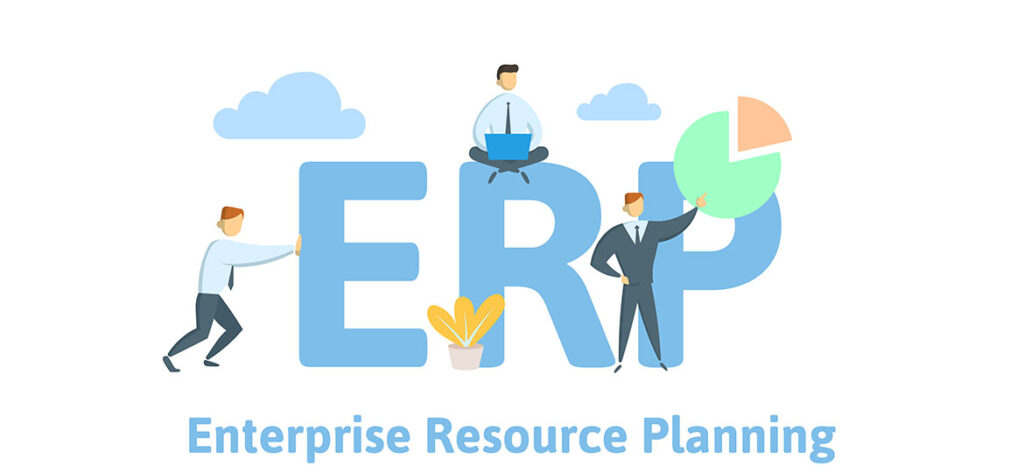ERP software was created to organize, manage, and improve business operations and procedures.
Find out everything there is to know about ERP, its advantages, and whether your company needs it.
Software called enterprise resource planning (ERP) assists companies in managing routine tasks like accounting and inventory control.
ERP serves as a centralized, shared database that cross-functional teams can access for their unique purposes, which can be advantageous for your firm.
Although large corporations have long utilized ERP to manage their business processes, more and more small firms are also implementing ERP to increase productivity and achieve long-term success.
Learn more about ERP in this article, including what it is, how it works, and which sectors now utilize it.
What is ERP?
ERP software was created to organize, manage, and improve business operations and procedures.
Find out everything there is to know about ERP, its advantages, and whether your company needs it.
Software called enterprise resource planning (ERP) assists companies in managing routine tasks like accounting and inventory control.
ERP serves as a centralized, shared database that cross-functional teams can access for their unique purposes, which can be advantageous for your firm.
Although large corporations have long utilized ERP to manage their business processes, more and more small firms are also implementing ERP to increase productivity and achieve long-term success.
Learn more about ERP in this article, including what it is, how it works, and which sectors now utilize it.
ERP system examples
Systems Analysis and Program Development, often known as SAP, Oracle ERP, and Microsoft Dynamics 365 are a few well-known examples of ERP.
Businesses utilize these systems to consolidate data and make use of the built-in data analytics to provide their teams with insights that can be put to use.
To manage client relationships, a company might, for instance, centralize customer lead information for both the sales and marketing teams using an ERP system like Microsoft Dynamics 365.
The team will be able to close sales more quickly, use focused digital marketing strategies, and cut back on expensive inefficiencies thanks to the deployed ERP.
Benefits of ERP
Enterprise resource planning generally enables businesses to save both time and money. Here are some of the primary benefits of ERP:
Save time and money: ERP software systems enable firms to forecast, plan, and operate more quickly, enabling them to grow and become more profitable.
Automate processes: Eliminating redundant and ineffective workflows through process automation boosts productivity and makes room for expansion and innovation.
Centralized system: Teams may readily access real-time data across the organization since management systems (modules) for all departments are located in one location. Everyone has easy access to reporting.
Data on the database system is secure and considerably more accurate than if it were entered manually, and it is also available in real-time.
Data can be tracked and kept an eye on, such purchases or sales. Instant report generation is helpful for planning, forecasting, budgeting, and sharing findings with teams and shareholders.
Accessibility on the cloud: Most ERP systems are now cloud-based, or at least have the option to be, allowing teams to access them from anywhere at any time.
Collaboration and knowledge sharing are made possible by the integration of all teams, which is made possible by ERP.
Access that is available to the entire business helps foster peace and togetherness in the workplace.
How does an enterprise resource planning system work?
Employees need to learn (and switch between) various software packages only to complete a single operation if businesses need to automate their workflow and production using seven separate systems.
ERP offers a centralized database solution to consolidate all of the information and planning in one location. Modules could consist of:
- Supply chain management
- Inventory management
- Project management
- Human resources
- Warehouse management
- Finance and accounting
- Risk management
- Sales orders and planning
- Business intelligence
- Data analytics
- Research and development
Types of ERP
Businesses can utilize on-site systems, cloud-based systems, or hybrid systems of any of the three forms of ERP.
Each form of ERP has distinct benefits and drawbacks, and it is best suited for particular use cases.
Here’s everything you need to know about each one quickly:
On-site ERP
The most common types of ERP are those that are kept in-house at a company’s own data center.
Instead of relying on internet solutions, a business must manage and deploy an ERP that is situated on its premises.
These kinds of ERP are some of the oldest systems, becoming well-known in the 1990s as the internet was just being started.
Cloud-based ERP
Nowadays, a lot of ERP systems are stored online in “the cloud” rather than in a company’s own data center.
The advantages of cloud-based ERPs include their ability to centralize all pertinent data for a company online and make it accessible to employees everywhere.
Additionally, systems are frequently upgraded by service providers and have advanced analytics features like predictive modeling and artificial intelligence.
Hybrid ERP
On-site and cloud-based ERP systems are combined in hybrid ERPs.
Businesses who have made major on-site system investments or that keep sensitive data on-site can combine these systems with cloud-based ones to maintain the advantages of updated cloud systems without having to make any changes to what they already have in place.
Types of industries
Because most businesses need to employ systems to manage their operations, ERP software can be useful across most industries.
The following sectors, which have a lot of moving parts, benefit greatly from ERP:
- production of health care
- Internet-based companies Construction
- Logistics and transportation
- food and drink
- Hospitality
- Telecommunications
- entertainment and the media
- Nonprofit institutions
- Government

